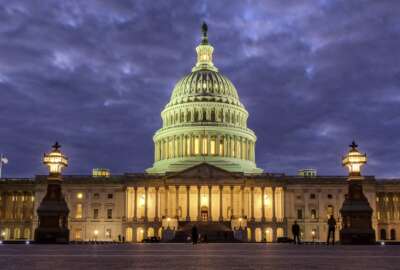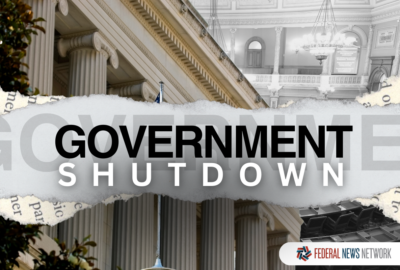USDA to pay SNAP benefits through February despite shutdown
Faced with a partial government shutdown with no certain end in sight, the Agriculture Department has come up with a budgetary workaround to ensure Supplemental...
Faced with a partial government shutdown with no certain end in sight, the Agriculture Department has come up with a budget workaround to ensure Supplemental Nutrition Assistance Program (SNAP) benefits continue to be paid out through February.
“President Donald Trump directed the Office of Management and Budget and USDA to determine a way to fully fund all the SNAP through the month of February, and we will do just that,” Secretary Sonny Perdue told reporters in a conference call Tuesday night.
Brandon Lipps, the acting Deputy Undersecretary for Food, Nutrition, and Consumer Services (FNCS) explained the agency will keep providing benefits through a provision in the last continuing resolution, which allows USDA program operations like SNAP and child nutrition programs to incur new obligations within 30 days of the CR’s expiration.
Under the now-expired CR, USDA has until Jan. 20 to pay out February SNAP benefits.
“The funds that we’re advising you today that we will be using are appropriated from the continuing resolution that expired on Dec. 21, and so will not need to be appropriated in a future bill,” Lipps said.
USDA specifically pointed to Section 110 of the continuing resolution, which states “funds shall be available” for entitlements and other mandatory payments made under the 2008 Food and Nutrition Act until 30 days after the CR expires.
The agency’s move to ensure SNAP recipients will receive next month’s benefits falls in line with the Trump administration’s push to keep public-facing afloat during a lapse in agency funding.
On Monday, the IRS announced it would still issue tax refunds starting on Jan. 28.
USDA has provided early SNAP benefits to states impacted by natural disasters, and will follow the same template to pay out benefits during the shutdown.
“If you look at the past hurricane seasons, when states are aware that a hurricane is headed toward their state, they work with us to request the ability to issue their benefits early as a lot of people evacuate their state. They will want to take those benefits with them and use them wherever they go,” Lipps said.
Lipps said he was “not aware” if USDA has ever followed its natural-disaster SNAP playbook during a shutdown before, but said the strategy would “maximize the time and flexibility” USDA has in delivering February benefits.
“We know this is a time of great uncertainty and no doubt some anxiety for the people who rely on SNAP in dealing with tough times,” Lipps said. “I hope that it’s reassuring for us to make clear today that we’re committed to maintaining service to SNAP clients without interruption to the extent possible under the law.”
USDA has directed states to request early issuance of February SNAP benefits before the Jan. 20 deadline. Lipps said USDA sent letters to all state agencies on Tuesday.
“States will load those funds onto the beneficiaries’ card prior to Jan. 20. Those funds will be available on their card to access at the store at that time,” Lipps said.
And the CR workaround will not prevent new households from signing up for SNAP benefits.
Officials said the department also has identified prior-year funds that will be provided to states’ Women, Infants, and Children (WIC) programs to operate for February.
USDA spends about $4.8 billion per month on SNAP. The agency also has a $3 billion contingency fund, which Lipps said would remain unaffected under this plan.
Some USDA functions, such as food safety inspections and law enforcement in national forests, also remain in effect under the partial government shutdown.
Perdue said the stopgap solution serves USDA’s motto: “Do right and feed everyone.”
“At the president’s direction, we’ve been working with OMB on this solution. It works and is legally sound, and we want to assure states and SNAP recipients that the benefits for February will be provided,” Perdue said.
The USDA secretary also urged the House and the Senate to come to an agreement on spending bills that would end the partial government shutdown.
“The president has been quite clear about what he expects to see in an appropriations package that will end this government shutdown,” Perdue said, referring to a “steadfast” ultimatum on border security funding.
So what if the shutdown extends well into February, and threatens SNAP and WIC benefits for March? Perdue said the short-term SNAP plan should give Congress “ample time” to reach a spending agreement before it disrupts benefits distribution for March.
Copyright © 2025 Federal News Network. All rights reserved. This website is not intended for users located within the European Economic Area.
Jory Heckman is a reporter at Federal News Network covering U.S. Postal Service, IRS, big data and technology issues.
Follow @jheckmanWFED






